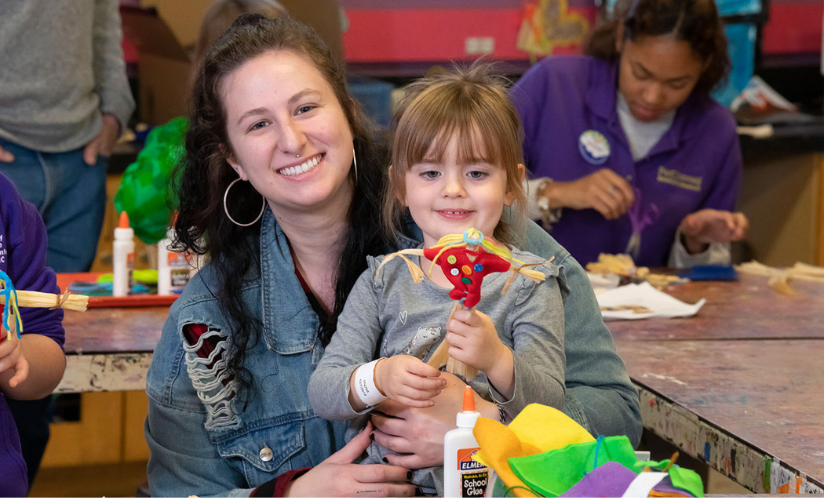
Dressing up, putting on performances, creating music, painting…what do these things all have in common? These creative outlets all help children develop important social-emotional, physiological, and cognitive skills, according to the National Endowment for the Arts.
When children engage in the artistic process of questioning, meaning-making, experimentation, risk-taking, reflection, curiosity, and joy, it positively impacts their social-emotional growth and understanding of the world around them. While exposing your child to the arts is important for areas such as literacy, math and science, and overall communications skill development, it also positively affects their social-emotional development for so many reasons!
1. Arts help develop and enhance social skills.
Wondering how your child can work on developing essential social skills like sharing, caring, and empathizing with others? Introduce them to the wonders of arts, music, and theater! Parents who took part in a research study and reported singing to their child at least three times a week were able to report back that their child demonstrated strong and sophisticated social skills. This same impact was seen in visual arts when parents used toys, such as blocks, for building several times a week.
2. Arts help children regulate their emotions.
Even as an adult, managing our emotions can be hard and straight-up exhausting. Did you know that music, theater, and the arts can help children learn how to understand and manage their thoughts and feelings? Research has shown that toddlers engaged in an integrative arts program (music, creative movement/dance, and visual arts) showed improvement in both their positive and negative emotion regulation. Another study reported a reduction in children’s anxiety and aggression after taking part in an eight-week-long dance group.
3. Arts have beneficial social-emotional outcomes for children of varying abilities and backgrounds.
The National Endowment for the Arts has found that while family income and socioeconomic status (SES) can impact children’s opportunities for arts participation, engagement in the arts has a positive impact on children from all SES levels. . In addition, when autistic children age three to five participated in music play as compared to traditional play with toys, they began to show improved social skills and communications such as maintaining eye contact. It’s amazing to see the impact music, theater, and art can have on the social-emotional development of little ones, regardless of their backgrounds or abilities!